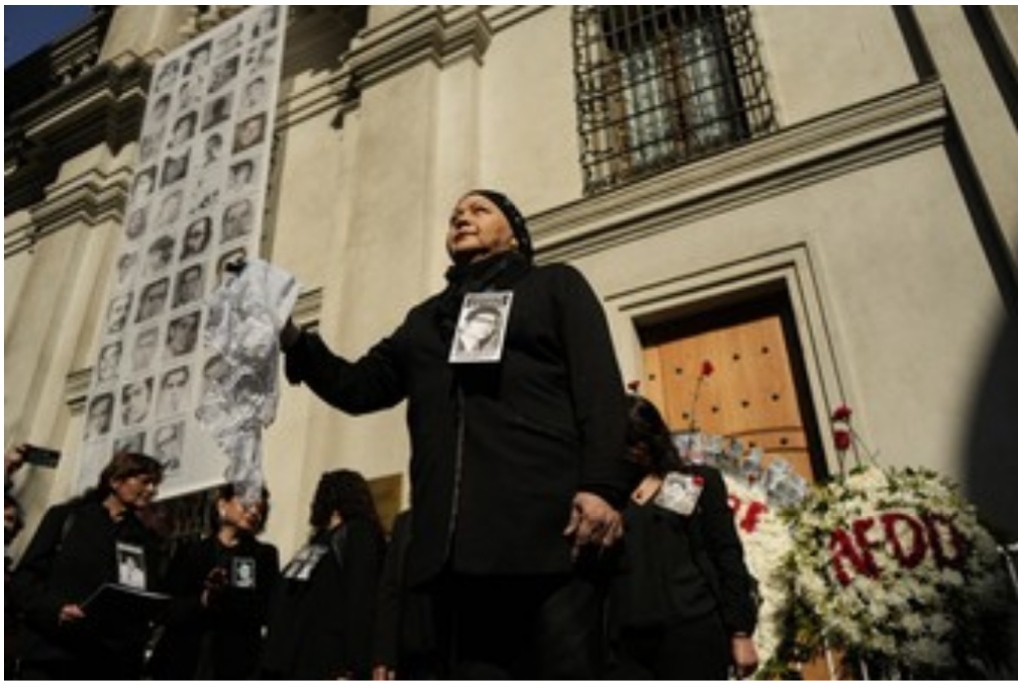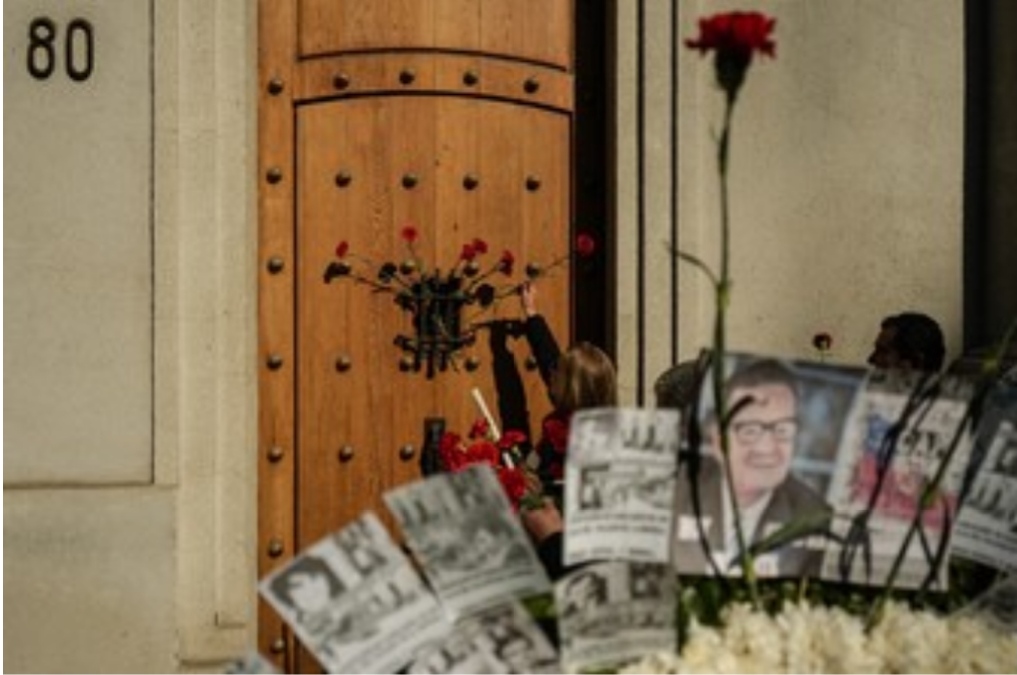Chile’s President vows to seek repeal of dictatorship-era amnesty law

Gaby Rivera, president of the Relatives of Detainees and Missing Persons organization, dances the “Cueca Sola,” a tradition dance that has become representative of mourning for those searching for disappeared family members, outside La Moneda presidential palace on the anniversary of the 1973 military coup in Santiago, Chile, on Sept. 11, 2024
Chile’s President Gabriel Boric on Wednesday promised to push for the repeal of an iron-clad amnesty that has for years ruled out most investigation of crimes against humanity committed by Gen. Augusto Pinochet’s military dictatorship.
President Boric’s vow — during a speech commemorating the 51st anniversary of Gen. Pinochet’s bloody U.S.-backed putsch that ended Chilean democracy and ushered in a 17-year reign of terror — escalates efforts to achieve a legal reckoning for Pinochet’s repression and bring those accused of human rights abuses to trial in local courts, as has happened in neighboring Argentina and elsewhere in the region.
“We renew our commitment to democracy and human rights, always, in our country and everywhere in the world,” Boric said from La Moneda Presidential Palace in the capital of Santiago, the center of authoritarian power in Chile over three decades ago. “Today’s date is a day that moves us, that invites us to remember and also to act.”
Boric, a millennial former student protest leader, pledged to speed up the passage of a bill that would revoke the amnesty that has shielded most military officers from prosecution for the torture and killing of thousands of opponents and critics during the first five years of the dictatorship, 1973-1978.
But with Boric’s unwieldy left-wing coalition lacking a majority in Congress, the future of the dictatorship’s self-bestowed amnesty appears uncertain.

Red carnations are placed at the eastern entrance of La Moneda presidential palace on the anniversary of the 1973 military coup and President Salvador Allende’s subsequent death in Santiago, Chile, on Sept. 11, 2024
Legislators, fragmented between 22 parties, have sparred over failed attempts by both the hard-left and hard-right to rewrite the Pinochet-era constitution.
Right-wing parties have been able to block congressional efforts to overturn the amnesty in the past. The stalled repeal bill that Boric is now seeking to revive was first introduced to Congress in 2014 by former socialist President Michelle Bachelet.
Gen. Pinochet, who originally decreed the amnesty in 1978, over four years after seizing power in the coup that overthrew elected socialist President Salvador Allende, enjoyed his self-awarded immunity even as Chile transitioned to democracy in 1990, serving as commander-in-chief of the army and a lifelong senator. Although detained for 17 months in London on the order of a Spanish judge, he died in 2006 without ever being held legally accountable in Chile.
According to official reports of government commissions, his dictatorship was responsible for the killing of at least 3,216 people, among them 1,469 forcibly disappeared whose remains have never been found, and the torture of many more.
Despite the amnesty, there have been some prosecutions over the years, as dozens of investigative judges managed to find loopholes in the law to prosecute some of Pinochet’s former subordinates. They have, for example, persuaded the Supreme Court that the dictatorship’s “disappearances” amounted to an ongoing abduction not covered by any amnesty.
That Chile’s efforts to invalidate the dictatorship’s long-standing amnesty have proved so contentious reflects the unique way that the country’s dictatorship ended.
Pinochet ceded power after losing a referendum in 1988 and bequeathed a booming economy and investor-friendly constitution that his center-left democratic successors hardly altered.
Polls conducted last year, a half-century after the coup, showed that a powerful minority of Chileans have retained support for Pinochet, particularly Chilean businessmen and the armed forces.
On Wednesday, a few dozen right-wing protesters rallied in the streets of Santiago chanting for a Pinochet-style military coup, raising photos of the ultra-conservative Catholic nationalist who they praise for saving the country from chaos and Cuban-style communism.
“A military coup was absolutely inevitable and there was no other possibility,” said Gustavo Benavente, head of the right-wing Independent Democratic Union party.
A proud supporter of the ousted socialist president Allende, Boric has pushed to denounce his country’s dark past since taking office in 2022. Last year, he announced the creation of a government-sponsored truth commission to work toward revealing the fate of the disappeared.
“Death, disappearance, the extermination of compatriots for thinking differently, the end of democracy… these are never the only possibilities,” Boric said at a ceremony honoring the victims of dictatorship-era crimes.




